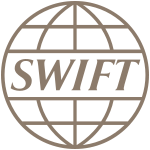 AP: A little-known company based in Belgium that facilitates many of the world’s financial transactions has become central to the West’s plan to prevent Iran from selling oil and other goods to raise money to fund its nuclear ambitions.
AP: A little-known company based in Belgium that facilitates many of the world’s financial transactions has become central to the West’s plan to prevent Iran from selling oil and other goods to raise money to fund its nuclear ambitions.
The Associated Press
By JONATHAN FAHEY, AP Energy Writer
 NEW YORK (AP) — A little-known company based in Belgium that facilitates many of the world’s financial transactions has become central to the West’s plan to prevent Iran from selling oil and other goods to raise money to fund its nuclear ambitions.
NEW YORK (AP) — A little-known company based in Belgium that facilitates many of the world’s financial transactions has become central to the West’s plan to prevent Iran from selling oil and other goods to raise money to fund its nuclear ambitions.
The company is called SWIFT, which stands for the Society for Worldwide Interbank Financial Telecommunication. It is a secure private network used by nearly every bank around the world to send payment messages to each other that then lead to the transfer of money across international borders.
The Obama administration wants Iran evicted from SWIFT, which said last week it would comply with European Union rules to cut off Iranian banks once it is clear on what is required.
Sanctions by Western nations and the United Nations against Iran do not now target Iran’s sale of oil. But if Iran and its banks are prevented from using SWIFT, it could be extremely difficult for the country to get paid for its oil. A single oil tanker delivery can be worth $100 million — far too much money to move any other way but electronically.
“This could be a potential silver bullet,” said Mark Wallace, a former U.S. Ambassador to the United Nations who is now president of a group called United Against Nuclear Iran.
Below are some questions and answers about SWIFT.
Q: What is SWIFT?
A: SWIFT is a cooperative based in Belgium that allows banks and other global financial institutions to send payment messages to each other securely. It was set up by banks in 1973. Non-bank financial institutions were allowed to join in 1987 and corporate customers of banks were allowed to join in 2000. The service has more than 10,000 users in 210 countries. About 17 million messages are sent every day.
Q: How does SWIFT facilitate trade?
A: By giving banks around the world a common language and a secure, private system to send payment messages. It doesn’t hold any money or even transfer the money. Once users exchange messages, funds are moved automatically either from one account to another or by wire transfer services to a party receiving money.
Q: Who oversees SWIFT?
A: The central banks of Belgium, Canada, France, Germany, Italy, Japan, The Netherlands, United Kingdom, United States, Switzerland, and Sweden, along with the European Central Bank. They make sure the service is stable and secure because it is so crucial to the global financial system. It is up to SWIFT customers to verify that the party it is doing business with is legitimate and to report suspicious activity to local governments.
Q: What do Western governments want from SWIFT?
A: The U.S. Congress and the European Union are contemplating sanctions that would prevent SWIFT from serving Iranian banks. The move is part of an unprecedented escalation of economic pressure meant to halt Iran’s suspected drive for nuclear weapons.
Q: Why is this strategy being pursued now?
A: Such a move would leapfrog the other sanctions aimed at persuading Iran to drop what the U.S. and its allies contend is a drive toward building nuclear weapons. The effort suggests the U.S. and Europe are grasping for ways to show immediate results because economic sanctions have so far failed to force Iran back to nuclear talks. It may help the U.S. buy time to persuade Israel not to launch a pre-emptive military strike on Iran this spring.
Q: Will Iran be able to sell its oil without access to SWIFT?
A: Probably. But Iran could have difficulty selling as much oil as it would like and could be forced to accept below-market prices. Banks in countries such as India and China, which are still planning to buy Iranian oil, could communicate outside of the SWIFT network and use wire transfer services to send money to Iran. Iran could also accept hard assets such as gold for its oil, though that would be inefficient and risky.
Even if financial institutions can find a way to trade with Iran, they may choose not to in order to avoid being banned from doing other business with Western nations.
Q: Are there any other ways Iran might work around the sanctions?
A: SWIFT outsources some of its message processing to regional contractors. Wallace’s group has said that practice could open a loophole for Iran.


